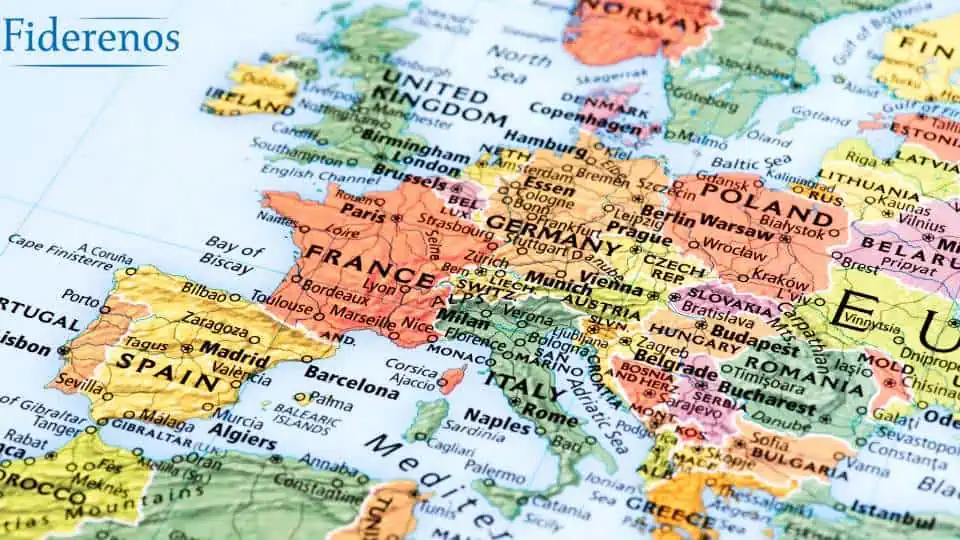
Table of Contents
Why choosing the right sales representative in Spain matters
If your company wants reliable growth in Iberia, hiring the right sales representative in Spain is not a cosmetic choice — it’s strategic. Spain is a large market with strong regional differences (Madrid, Catalonia, Valencia, Andalusia) and a business culture that values relationships and language. A good sales rep not only converts leads, but also protects your brand and reduces costly mistakes in market entry.
This guide helps you spot the five non-negotiable skills and gives practical ways to evaluate them during recruitment or partnership conversations.
Skill 1 — Proven track record and measurable results
What to look for
- Clear KPIs from past roles (sales targets, conversion rates, average deal value).
- Case studies or named references (preferably a client you can contact).
- A documented sales process they use (prospecting → qualification → demo → close → aftercare).
How to verify
Ask the sales representative candidate for a concise one-page case study: targets, timeline, actions taken, and outcome. If they refuse or provide vague answers, treat that as a red flag.
Skill 2 — Deep knowledge of local markets and regional differences
Spain isn’t homogeneous. An excellent sales representative will:
- Explain differences in buying behaviour between Madrid, Barcelona or Sevilla.
- Know local distribution channels relevant to your product (distributors, retail chains, specialised wholesalers).
- Speak the local languages necessary for the region (Spanish + Catalan/Valencian/Galician if relevant).
Practical test: give the sales rep candidates a short market-mapping exercise — ask them to list three target accounts in their region and describe how they would approach each.
Skill 3 — Excellent communication and negotiation skills
Top sales representative in Spain are persuasive but professional. Look for evidence that they:
- Build rapport quickly and appropriately (adapt tone to context).
- Manage objections with facts + empathy.
- Close with clarity — clear terms, delivery expectations and follow-up steps.
Interview suggestion: run a role-play where the sales representative must handle a price objection for a mid-sized order.
Skill 4 — Tech-savvy, data-driven sales approach
Modern sales is 50% process and 50% tooling. The best sales representative will:
- Use a CRM (HubSpot, Pipedrive, Salesforce) and show how they track pipeline health.
- Use LinkedIn Sales Navigator and email automation responsibly (personalisation > spray-and-pray).
- Measure outcomes (lead conversion rates, time-to-close, average revenue per client).
Evidence: request a sanitized CRM export (pipeline report) or screenshots that show active pipeline stages.
Skill 5 — Grit, persistence and cultural adaptability
Success in Spain often requires persistence and cultural fit. A great sales representative will:
- Demonstrate long-term client development rather than one-off wins.
- Explain how they handle long sales cycles and post-sale account management.
- Show examples where they adapted approach to local cultural customs.
How to assess candidates: checklist & interview questions
Short checklist (must-haves):
- Fluent Spanish (and English if your HQ operates in English).
- Minimum 2 case studies or references with contact details.
- CRM experience and simple KPIs to prove results.
- Clear commercial terms they typically ask for (commissions, exclusivity, territory limits).
Interview questions to ask
- Describe a sale you closed that looked impossible at first. What steps did you take? What were the metrics?
- Which three accounts in your region would you target for our product and why?
- Show me your normal sales process and how you use your CRM.
- How do you manage renewals and after-sales satisfaction?
- What contractual terms do you consider fair for both parties?
Contract models & compliance notes for companies working with sales reps in Spain
Common commercial models
- Commission-only freelance sales rep (autónomo): flexible, low fixed cost, but requires strong verification.
- Retainer + commission: useful when onboarding a new territory.
- Employee contract: rare for external partners unless you want full control.
Compliance notes
- If the rep is an autónomo (self-employed), ask for their fiscal details and invoice examples.
- Consider a simple written agreement covering territory, KPIs, commission schedule and termination notice.
You may be interested to read our full guide on How to Partner with a Sales Agent in Iberia or consult this blog post: Sales Partner in Spain & Portugal: Why the Model Is Growing in 2025.
Need help finding a top sales Representative in Spain? Contact us today for expert guidance!

FAQs
Q: What’s the difference between a sales representative and a sales agent in Spain?
A: The terms are often used interchangeably. Practically, an agent may refer to a self-employed representative (autónomo) with a territory and commission; a representative can be either an employee or an external contractor.
Q: Should I hire a local Spanish speaker or an English speaker sales representative?
A: Always prioritise local Spanish fluency — it’s essential for B2B trust and negotiations. English is useful for tech/scale-up environments but not a substitute for local language skills.
Q: How much commission is usual practice in Spain?
A: Commission varies by industry. Expect 5–20% of margin or a fixed percentage of revenue depending on product type and margin.
Q: Can a European company sign a contract with a sales agent in Spain?
A: Yes — many UK firms work with autónomos. Ensure invoices include required fiscal information and consult a local accountant for payroll/tax implications.
Q: How quickly will a sales representative deliver results?
A: It depends on your sector and average sales cycle. Expect initial market mapping and first qualified leads within 6–12 weeks for B2B mid-market products.
Q: Do sales representative roles and compensation differ significantly between Spanish regions (e.g. Madrid, Catalonia, Andalusia)?
A: Yes. Differences in cost of living, business density, language markets (e.g. Catalan + Spanish in Catalonia, or regional dialects), local industry concentrations, and competitiveness mean that roles in Madrid or Barcelona tend to command higher salaries or larger commissions than less urban areas.
For example, in Barcelona the average base salary for a sales representative is around €36,000/year (Glassdoor). In contrast, in more central / capital city roles, the average may be higher (or the total compensation structure more aggressive).
Q: How does language capability or regional language (Catalan, Basque, Galician) affect a sales representative’s value or fit in certain regions?
A: In areas like Catalonia, Valencia, Basque Country, etc., being bilingual (Spanish + regional language) can be a strong asset, especially for local client relationships or when dealing with regional institutions. A candidate who can communicate in Catalan + Spanish may command a slight premium (or be preferred) in Catalonia over someone who speaks only Spanish or only English. You could thus include a short section in your article about “language as a region-level differentiator.”
Q: How is commission typically structured for sales reps in Spain?
A: Commissions often are either (a) a fixed percentage of sales revenue / margin, or (b) tiered (higher percentage once certain thresholds are met). Some contracts include a “draw against commission” (advance) scheme. It’s common to have a mix: a base salary plus variable pay. The variable component may be capped or uncapped. Also, in Spain, structure should be transparent in the contract (percentage, frequency, payment terms, clawback conditions, etc.).
Q: Under Spanish law, how should you contract a sales representative — as an employee or as a sales agent / autónomo?
A: There’s a legal distinction. Under Spanish law, commercial agents / sales representatives are regulated by a special regime. Contracts may be written or oral, though written is recommended, and may be considered “employment relationships” under certain conditions (if economic dependency, control, permanence exist) despite an attempt to treat them independently.
Because of court precedent, companies must carefully draft contracts so that they respect the special agency law (for agents) or standard employment law if they are full employees.
Q: What must a valid employment or agent contract include in Spain (mandatory clauses)?
A: Under Spanish rules, whether for an employment contract or agent/representative agreement, mandatory elements include:
> Names and addresses of parties
> The nature / description of the role / services
> Type of contract (permanent, fixed term, etc.)
> Salary / compensation + method of payment
> Working hours, overtime rules, breaks
> Start date (and end date if fixed)
> Probation clause (if any)
> Notice period and termination conditions
> If commissions / bonuses apply, how they’re calculated and paid
> Details of expenses / reimbursements (travel, lodging, etc.)
> Non-competition / non-solicitation (if included) but these must comply with Spanish limits (duration, compensation).
Also, if the contract is for specific categories (training, part-time, remote), additional clauses may be legally required.
Q: Is a non-compete clause enforceable for sales reps in Spain? If so, what are the limits?
A: Yes, non-compete (non-competition) or restrictive covenant clauses can be included, but they are limited in duration and scope, and must include adequate compensation for the period. For “normal” roles, non-competes are often limited to 6 months post-termination; for specialized technical professions they could reach up to 2 years, provided compensation is fair. (Wikipedia)
Any clause that attempts to waive the statutory right of the rep to claim indemnification upon contract termination is null (unenforceable). (navanavarrollimaabogados)
Q: What are the rules / limitations around terminating a sales representative contract in Spain?
A: Termination in Spain is more regulated than in many jurisdictions:
> You cannot typically terminate “at will.” Valid grounds / cause must exist (e.g. poor performance, just cause, objective dismissal). (Safeguard Global)
> In the case of agent / commercial representative contracts, Spanish law provides for indemnity / compensation to the agent for client goodwill or loss upon termination (if certain criteria are met).
> The notice period must comply with contract / collective bargaining terms; some minimum (e.g. 15 days) may apply.
> If a contract is terminated unfairly, courts may award damages or enforce severance / compensation.
Q: What are the social security / tax liabilities when hiring a sales rep in Spain?
A: If the salesperson is an employee, the employer must contribute social security, unemployment insurance, disability & pension, etc. The employer’s social security share can be 30-35% of the gross salary (varies by sector, risk, region) on top of the gross pay. Native Teams+1
If you hire them as a commercial agent / autónomo, they carry most of the tax / social contributions themselves, but risk legal reclassification if control or dependency criteria exist.



